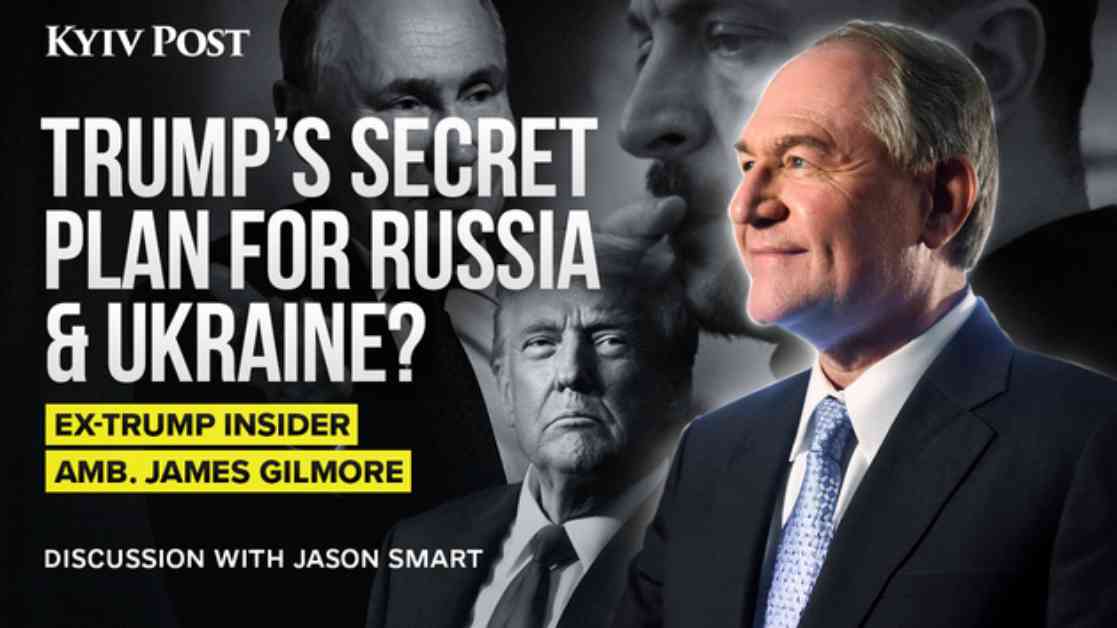Recent developments in US foreign policy under President Donald Trump have sparked concerns in Kyiv about the potential abandonment of Ukraine, as the US engages in discussions with Russia without involving Ukrainian representatives. James Gilmore, former US Ambassador to the OSCE and ex-Governor of Virginia, sheds light on the situation, providing a unique perspective on Russia’s aggression in Ukraine and the broader implications of this conflict.
Insights from an Ex-Insider
Gilmore, a staunch supporter of Ukraine’s sovereignty, delves into the inner workings of the White House and sheds light on the possible motivations behind the recent diplomatic maneuvers. With a background in working with European allies and a history as a US military intelligence officer during the Cold War, Gilmore brings a wealth of experience to the table. He emphasizes the importance of understanding the geopolitical consequences of Russia’s actions and how they impact Western nations.
In a candid conversation, Gilmore highlights the significance of backing Ukraine from an American perspective. He stresses that regardless of the outcome of current negotiations, supporting Ukraine aligns with US interests. As tensions continue to rise between Washington and Moscow, Gilmore’s insights offer a valuable perspective on the complexities of international diplomacy.
The Road Ahead for US-Ukraine Relations
As the Trump administration navigates delicate diplomatic waters, the future of US-Ukraine relations remains uncertain. With the specter of Russian aggression looming large, Gilmore’s analysis provides a roadmap for policymakers to navigate these turbulent times. By understanding the historical context of US-Russia relations and the strategic importance of Ukraine in the region, decision-makers can craft a more informed approach to foreign policy.
Gilmore’s expertise underscores the need for a nuanced understanding of the geopolitical landscape and the implications of various policy decisions. As the US weighs its options in dealing with Russia, Gilmore’s insights serve as a valuable resource for those seeking clarity in a complex and ever-changing global environment.
In conclusion, Gilmore’s perspective offers a sobering reminder of the stakes involved in the US response to Russia’s aggression in Ukraine. By backing Ukraine and standing firm against Russian encroachment, the US can uphold its commitment to democracy and stability in the region. As the situation continues to evolve, Gilmore’s insights provide a valuable framework for understanding the challenges and opportunities that lie ahead.

















